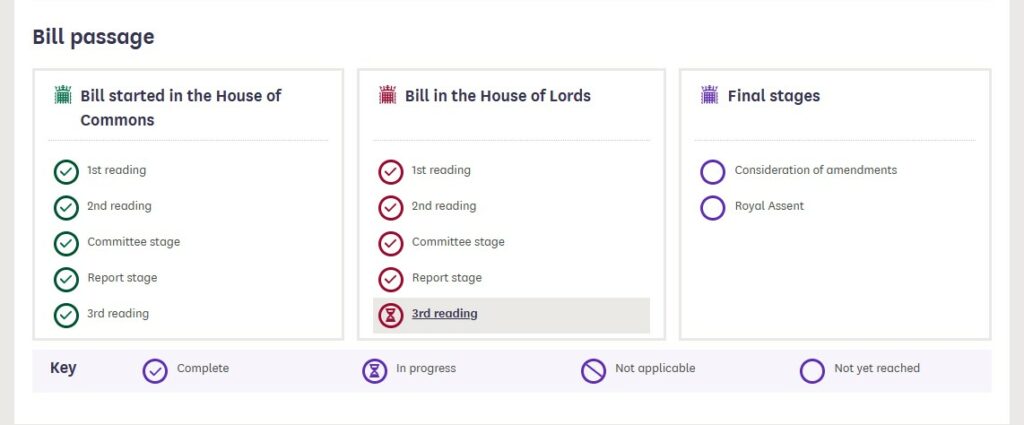The UK Employment Rights Bill: Where does it stand currently?

Since Labour introduced the Employment Rights Bill in October 2024, HR professionals and business leaders across the UK have been closely monitoring its progress to understand when the bill will come into effect. With major reforms promised, from banning zero-hour contracts to enhancing employee protections, it’s important to understand where the bill stands in Parliament and how long HR teams have to prepare.
Where is the Employment Rights Bill now?
Before any legislation becomes law in the UK, it must pass through several key stages in both the House of Commons and the House of Lords. The Employment Rights Bill is currently progressing through these stages and, although the CIPD previously hinted to it becoming law before Parliament’s summer recess in July 2025, it’s now looking more likely to pass around autumn time.
You can see the bill’s progress in the visual below:

While the bill has not yet been finalised, its current version outlines a series of changes that would significantly reshape employer obligations and employee rights.
Expected key reforms in the Employment Rights Bill
Although the exact legislative wording and final amendments are still pending, the following headline reforms are anticipated:
Ban on “exploitative” zero-hour contracts
The bill aims to remove the use of zero-hour contracts, which are deemed exploitative, to provide greater job security for all workers.
End to fire and rehire practices
The bill also seeks to prevent employers from dismissing staff and rehiring them under less favourable terms, a practice known as fire and rehire or fire and replace.
Day-one employment rights
Employees would gain the right to claim unfair dismissal and access family-friendly policies such as paid parental leave from their very first day on the job.
Stronger collective redundancy rights
Proposed changes would give employees greater protection and clarity during collective redundancy processes.
Statutory Sick Pay (SSP) reforms
The bill proposes removing both the Lower Earnings Limit and the SSP three-day waiting period, making sick pay more accessible to lower-paid workers, and more quickly.
What happens next?
The Employment Rights Bill must still clear all stages in both houses of Parliament before receiving Royal Assent and becoming law. While the final details are subject to change, organisations should prepare for implementation in advance of any legal enforcement to minimise business disruption.
Preparing for the Employment Law Changes in 2025
Now is the time for employers and HR leaders to begin preparations (if they haven’t already) for these anticipated reforms. Reviewing current employment practices, updating internal policies, and training line managers on the potential changes can help ensure organisational compliance and reduce legal risk when the time comes to implement these reforms.
We will update this blog post as we get a more solid understanding of the details for each mentioned reform, and as the bill continues to pass through parliament.
In the meantime, our friendly HR experts can help you get ready for these changes. We can provide tailored guidance and resources based on your organisation’s needs, including thorough policy and contract reviews. Get in touch with us today to find out more.
